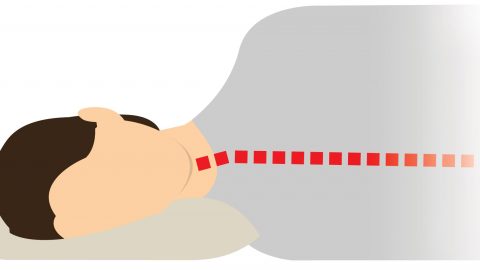
Achieving high-quality REM sleep is essential for overall health and well-being. REM (Rapid Eye Movement) sleep plays a crucial role in memory consolidation, emotional regulation, and physical restoration. Unfortunately, modern lifestyles often disrupt this vital sleep phase. In this article, we’ll explore actionable strategies to improve REM sleep and ensure you wake up feeling refreshed and rejuvenated.
Understanding REM Sleep
What Is REM Sleep?
REM sleep is a unique stage of the sleep cycle characterized by rapid eye movements, heightened brain activity, and vivid dreams. It typically occurs 90 minutes after falling asleep and recurs multiple times throughout the night. During this stage, your brain processes emotions, consolidates memories, and boosts creativity.
The Stages of the Sleep Cycle and Their Importance
The sleep cycle has five distinct stages divided into non-REM and REM sleep. Non-REM stages are responsible for physical repair and recovery, while REM sleep focuses on cognitive functions. A balanced sleep cycle is critical for overall health.
Why REM Sleep Matters for Health and Well-Being
REM sleep contributes to mental sharpness, emotional stability, and problem-solving abilities. Insufficient REM sleep is linked to mood disorders, impaired memory, and even a weakened immune system.
The Science Behind REM Sleep
How REM Sleep Affects Brain Function
REM sleep plays a significant role in brain development and repair. During this phase, neurons form stronger connections, promoting learning and adaptation.
The Role of REM Sleep in Memory Consolidation
One of REM sleep’s primary functions is memory consolidation. It processes and organizes information gathered during the day, transferring it from short-term to long-term storage.
Hormonal Regulation During REM Sleep
Hormones like melatonin and serotonin peak during REM sleep, regulating mood, appetite, and circadian rhythms. Proper REM sleep ensures hormonal balance, reducing stress and anxiety.
Signs of Poor REM Sleep

Common Symptoms of REM Sleep Deprivation
- Trouble focusing or retaining information
- Increased irritability or mood swings
- Feeling fatigued despite adequate sleep duration
- A lack of vivid or frequent dreaming
Health Risks Associated with Low REM Sleep
Chronic REM sleep deprivation can increase the risk of conditions like depression, heart disease, and cognitive decline. Over time, it may also weaken the immune system.
Recognizing Disruptions in Sleep Patterns
Using sleep-tracking devices or consulting a specialist can help identify issues like fragmented sleep cycles or insufficient REM sleep.
Factors That Disrupt REM Sleep
Stress and Its Impact on Sleep Cycles
Chronic stress triggers the release of cortisol, which interferes with REM sleep by reducing its duration and quality.
Medications and Their Effects on REM Sleep
Certain medications, including antidepressants and beta-blockers, can suppress REM sleep. Consult your doctor if you suspect your medication is affecting your sleep.
Lifestyle Choices That Hinder REM Sleep
Irregular sleep schedules, excessive caffeine, and alcohol consumption can disrupt the natural sleep cycle and reduce REM sleep.
Strategies to Improve REM Sleep
Establishing a Consistent Sleep Schedule
Going to bed and waking up at the same time every day helps regulate your body’s internal clock, ensuring better REM sleep.
Optimizing Your Sleep Environment

- Use blackout curtains to block light.
- Maintain a cool, comfortable room temperature.
- Invest in a supportive mattress and pillows.
Creating a Relaxing Bedtime Routine
Incorporate calming activities like reading, meditating, or a even a soak in a hot tub to signal your brain that it’s time to sleep.
Nutrition and REM Sleep
Foods That Enhance REM Sleep
Avoiding Sleep-Disrupting Foods and Drinks
Limit caffeine and alcohol intake, especially in the evening, as they can reduce the depth of REM sleep.
The Role of Supplements in Promoting REM Sleep
Supplements like melatonin, magnesium, and valerian root can aid in achieving restorative sleep. Always consult a healthcare provider before starting new supplements.
Exercise and REM Sleep

The Connection Between Physical Activity and Sleep Cycles
Regular exercise improves overall sleep quality and enhances REM sleep by reducing stress and balancing energy levels.
Best Times to Exercise for Better REM Sleep
Engage in physical activities during the morning or early afternoon. Late-night workouts can overstimulate the body, disrupting your sleep cycle.
Balancing Intensity to Avoid Overstimulation
Moderate-intensity exercises like yoga or brisk walking are particularly effective for promoting better sleep.
Technology and REM Sleep
Managing Screen Time Before Bed
Reduce screen exposure at least an hour before bedtime to minimize blue light’s impact on melatonin production.
How Blue Light Affects REM Sleep
Blue light suppresses melatonin, delaying REM sleep onset. Use blue light-blocking glasses or enable night mode on devices.
Utilizing Sleep-Tracking Apps and Devices
Apps like Fitbit and Oura Ring provide valuable tools for monitoring your sleep stages, offering detailed insights into your REM sleep patterns. However, the Apple Watch takes sleep tracking to the next level. With its advanced sensors and integration with the Health app, the Apple Watch not only tracks your sleep stages, including REM, but also provides additional metrics like heart rate variability, blood oxygen levels, and even trends in sleep consistency over time. Its seamless connectivity with your other Apple devices allows you to easily access, interpret, and act on your sleep data, making it a powerful tool for improving sleep quality and overall health.
Mental Health and REM Sleep
Addressing Anxiety and Stress for Better Sleep
Practice mindfulness, journaling, or deep-breathing exercises to alleviate stress and enhance sleep quality.
The Link Between Depression and REM Sleep Disruption
Depression can shorten REM sleep cycles or cause excessive dreaming. Seeking therapy or treatment can help restore balance.
Mindfulness Practices to Enhance Sleep Quality
Techniques like progressive muscle relaxation or guided meditation can improve sleep onset and duration.
Medical Interventions for REM Sleep Improvement
When to Seek Professional Help
If sleep disturbances persist despite lifestyle changes, consult a sleep specialist for evaluation.
Common Treatments for Sleep Disorders
Cognitive-behavioral therapy (CBT) and sleep studies can identify and treat underlying issues like sleep apnea or insomnia.
Medications and Alternatives for REM Sleep Enhancement
Prescription sleep aids or alternative therapies like acupuncture may help restore normal sleep patterns.
The Role of Sleep Aids and Natural Remedies
Herbal Teas and Their Effect on Sleep
Chamomile, valerian root, and passionflower teas are known for their calming properties.
Aromatherapy for Deep Sleep and Relaxation
Essential oils like lavender and eucalyptus can create a soothing sleep environment.
Natural Supplements for REM Sleep Support
Magnesium, melatonin, and L-theanine are popular natural aids for better REM sleep.
Tracking Your Sleep Progress
Understanding Sleep Metrics
Learn to interpret key metrics like sleep duration, sleep latency, and REM percentage.
How to Measure REM Sleep Effectively
Devices like polysomnography or wearable sleep trackers provide detailed insights into sleep stages.
Tools for Monitoring Sleep Cycles
Use smartwatches, rings, or apps to keep track of sleep improvements over time.
Common Myths About REM Sleep
Debunking Misconceptions About Sleep Stages
Contrary to popular belief, REM sleep is not the only important stage—non-REM stages are equally crucial.
Myths About Sleep Duration and Quality
It’s not just about the hours you sleep but also the quality of those hours.
Separating Fact from Fiction in Sleep Science
Scientific research continually evolves; stay informed to avoid outdated advice.
FAQs About Improving REM Sleep
How Much REM Sleep Do I Need?
Adults need about 20–25% of their total sleep time in REM, equivalent to 90–120 minutes.
Can I Improve REM Sleep Quickly?
Improving REM sleep may take time, but consistent habits like better sleep hygiene can yield noticeable results within weeks.
What Are the Best Habits for Better REM Sleep?
Stick to a regular schedule, avoid stimulants before bed, and create a calming nighttime routine.
Is Dreaming a Sign of Good REM Sleep?
Dreaming often indicates healthy REM sleep, though vivid or frequent dreams aren’t the sole measure of sleep quality.
Do Sleep Trackers Accurately Measure REM Sleep?
While not as precise as medical-grade tools, many trackers provide reliable trends.
Can Meditation Enhance REM Sleep?
Yes, mindfulness practices can reduce stress and promote deeper sleep cycles, including REM.
Conclusion: Achieving Optimal REM Sleep
Achieving better REM sleep is a gradual process, but the benefits are immense. By adopting healthier habits, addressing stress, and consulting professionals when necessary, you can unlock the full restorative potential of your sleep. Start today for a healthier tomorrow!



